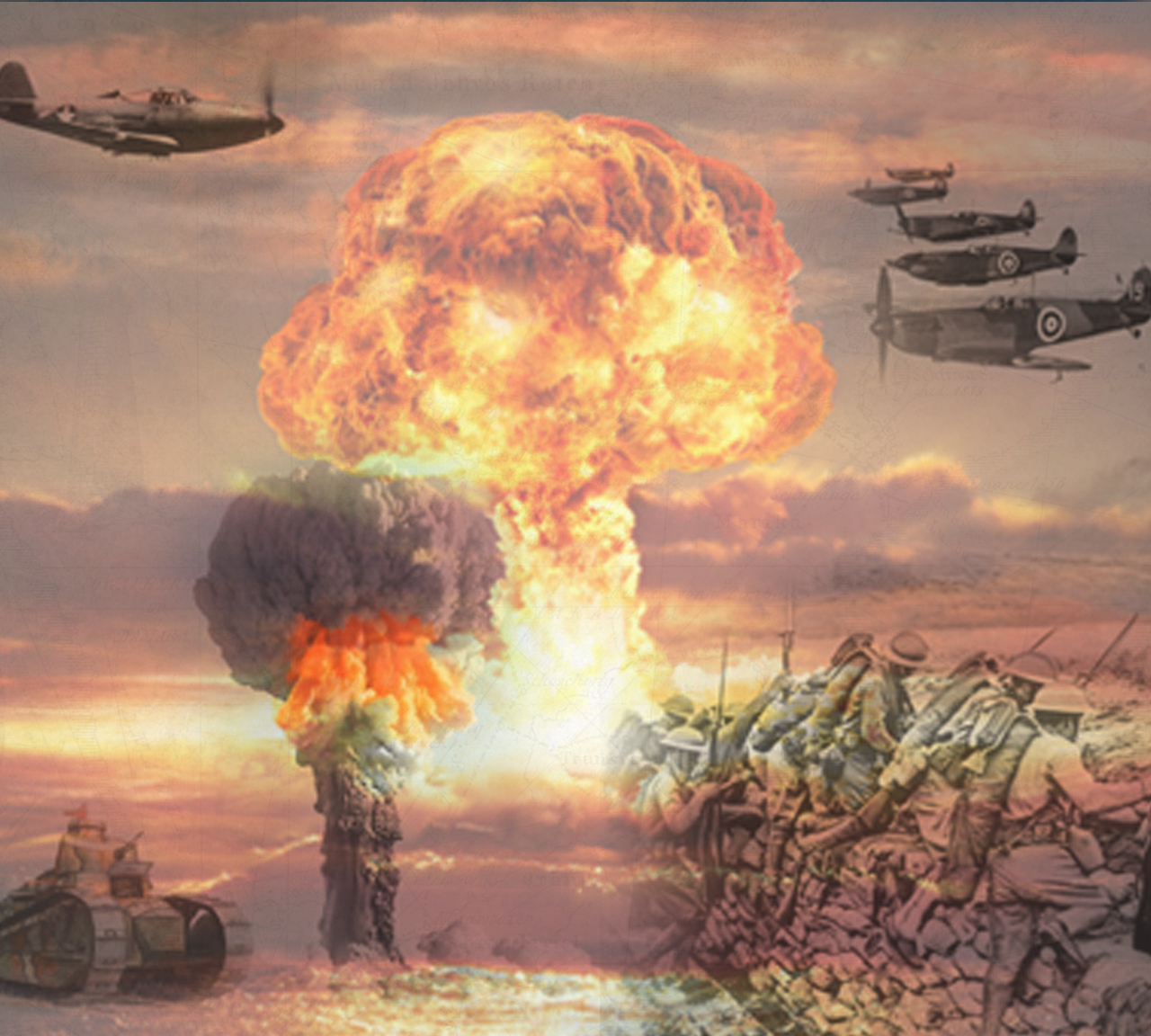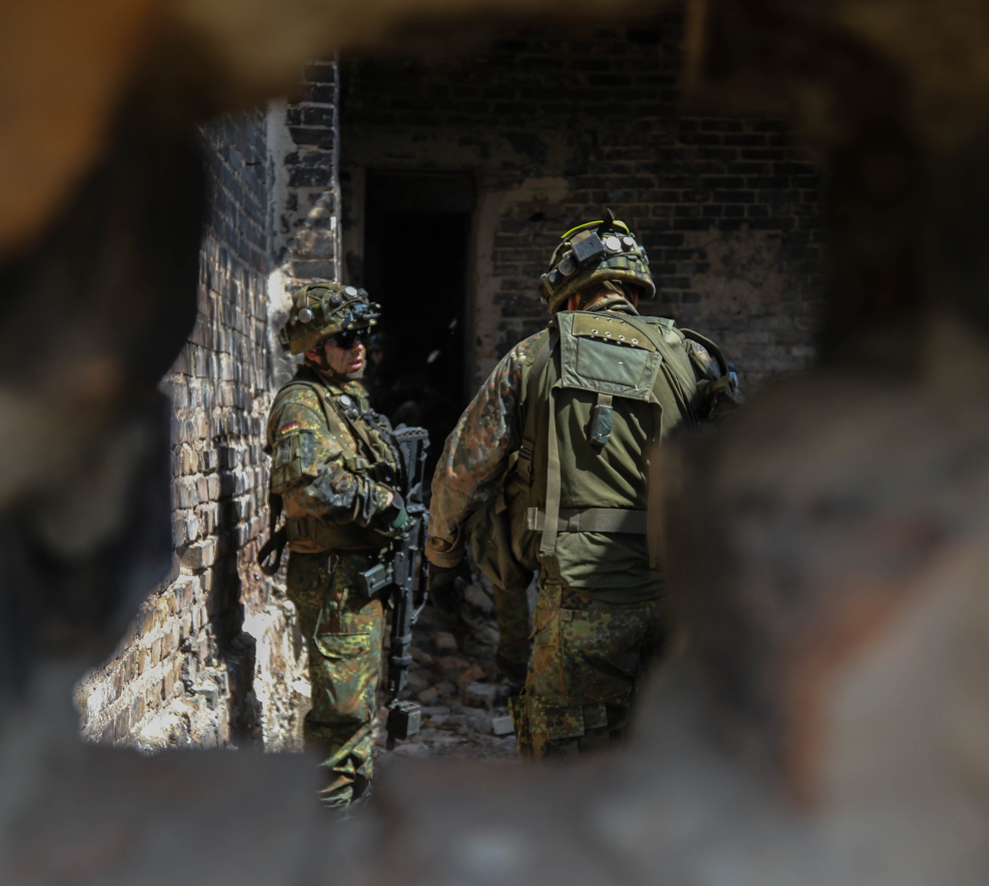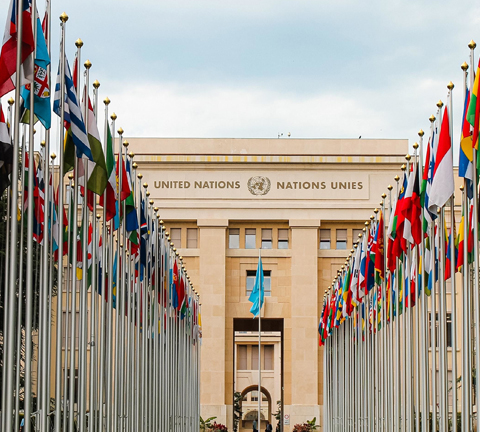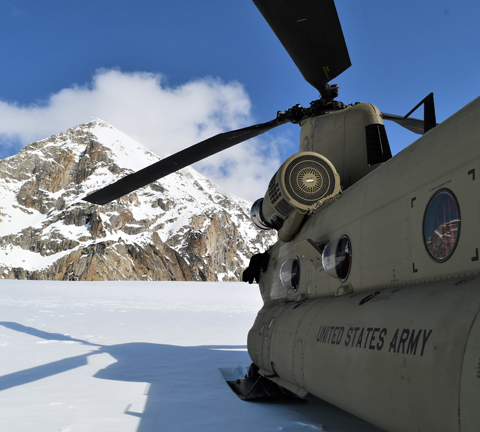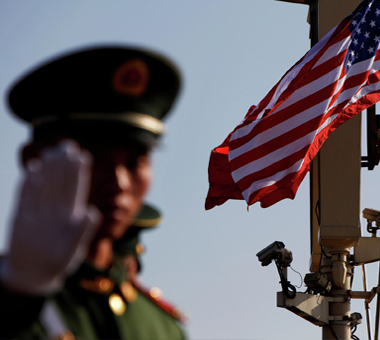In August 1945, Japan was forced to surrender in World War II after Hiroshima and Nagasaki were attacked by the first nuclear weapon in history. Four years later, the Soviet Union announced its first nuclear test, breaking the U.S. monopoly over the weapon and making the "Mutual Nuclear Deterrence" the most powerful feature of the bipolar system.
Strategic theorists have sought to innovate new means to contain the manifestations of polar conflicts, fearing further usage of weapons of mass destruction. The two powers and the entire international community have realized the extent of the "Mutual Assured Destruction", formally known as (MAD), which may occur if a direct and inclusive confrontation takes place.
Since the 1950s, the objective of the "military strategy" has shifted from achieving victory into avoiding a destructive and costly confrontation that does not accomplish the strategic objective of the State's foreign policy per the "cost and benefit" equation. The means of achieving the general objectives of a State's foreign policy have also expanded to include economic and diplomatic tools. In fact, "hard power" is no longer the sole pillar in international relations. Proponents of "Realism" in international relations attribute the absence of a war between the U.S. and the Soviet Union to the two parties' keenness on avoiding a confrontation, in which the levels of weapons may range from conventional weapons to weapons of mass destruction.
However, betting on "mutual deterrence," which refers to the recognition of a party's capability to cause considerable harm to the other, remains rife with risks of miscalculating intentions and considerations. Therefore, the martial doctrines varied between the offensive, which adopts the option of a preemptive strike and the defensive, which opts for a second retaliatory strike.
The interpretation of a party's increased armament as a potential threat would maintain the intention-based security dilemma. While increasing military capabilities is considered a means of maintaining the requirements of national security, the counter-party may perceive it as an imminent threat to its stability.
The "Deterrence System" is linked to assumed rationality towards the nuclear strategy, subjecting it to in-depth assessment when making relevant decisions. However, the system remains influenced by the variables that may not be measurable and ascertainable, which makes the termination of "nuclear peace" a possible scenario in some circumstances.
Nuclear weapons are mainly criticized for their mass destruction that does not differentiate between military and civilian objectives. Therefore, technical development has refined the range of destruction to be focused on a specific epicenter. Weapons with a destructive capacity of less than one kiloton of TNT are classified as tactical nuclear weapons, which is not of limited capability. The "little boy" bomb dropped at the Japanese city of Hiroshima had an explosive yield of 12-18 kilotons of TNT, according to varied estimates.
The classification of nuclear weapons, whether they are strategic or tactical, clearly varies among different countries, according to a report constantly updated by the Nuclear Threat Initiative (NTI). France classifies all of its deployed weapons as strategic, while China classifies many of its nuclear weapons as strategic even though they are tactical weapons by Russian and U.S. standards. Hence, some academic and operational classifications tend to adopt the "range" factor to determine a weapon's category rather than the "resulting destruction". The U.S. and Russia classify tactical weapons as short-range weapons (less than 600 km), which deprives the targeted party of the needed time to deal with the situation.
Armies are increasingly leaning towards tactical weapons to adapt to the various operational threats they may face. The "Nuclear Posture Review" undertaken by the U.S. Department of Defense in January 2018 stressed the importance of low-energy nuclear weapons to ensure a credible nuclear deterrent in the face of the growing Russian threats in Europe.
However, the use of these nuclear weapons is free from political and moral constraints when compared to strategic weapons, which might prompt decision-makers to be less meticulous when issuing an order for a limited-scope strike. Regardless of the level of the energy released in the bombing, the ability to limit any nuclear escalation at its lowest levels is uncertain. Such tactical weapons might be a spark for another strategic weapon even though the “tactical” objective is to avoid triggering the use of high-powered weapons.
As the world became accustomed to the terrorism phenomenon and its changing methods, international relations seem to slowly return to the conventional notion of deterrence to ensure international security and stability. Based on the security doctrines stemming from the deterrence theory, security is seen as a survival issue. In this case, the security logic falls short of the necessary means related to the living conditions of the population.
What may reinforce this return is the multiplicity of international and regional polar centers and the growing military competition among them. This is in light of the double standards between the motives of imposing the de facto and the necessity of taking into account the ethical aspects of wars. The history shows that States overlook these aspects in crucial issues for the sake of "survival". Therefore, Russia's Federation Council did not hesitate to suspend The Intermediate-Range Nuclear Forces (INF) Treaty on June 27, 2019, after the U.S. announced its withdrawal. On the same day, Tehran announced increasing the enrichment of uranium in response to what is perceived as a lack of commitment to the economic and trade pledges made by the signatories to the Lausanne nuclear agreement.
At the current stage -as in the previous stages-, the active actors in the international community are seeking to regulate the proliferation of weapons of mass destruction vertically and horizontally. The vertical proliferation refers to the advancement of a State's weapons arsenal qualitatively or quantitatively, whereas horizontal proliferation refers to the joining of a new State into the nuclear club. In the Middle East, if a country wishes to improve its regional status, it may seek to join the club since the nuclear deterrence ensures a solid political position of the State. The militarization of the various disputed issues and the absence of a radical and sustainable solution to existing conflicts are two factors that encourage several States to rely further on the "de facto legitimacy" through various means.
A Nuclear Middle East
The first influence by nuclear capabilities in the Middle East goes back to the 1973 war between Egypt and Syria on one hand and Israel on the other hand. Some reports indicate that the Israeli Prime Minister Golda Meir ordered the deployment of Jericho missiles, which could be fitted with nuclear warheads. The U.S. then intervened with an aerial bridge of logistics military supply to compensate for the superiority of conventional Arab weapons at the expense of Israel. The U.S. intervention sought to avoid the result of having a victorious party and an existentially defeated one, in addition to preventing the Egyptian army from moving further to the extent that Israel would be forced to use a nuclear weapon in case of its availability.
Israel adopts the policy of "nuclear ambiguity" without denying its possession of military nuclear capabilities. Any effective deterrent system is based on credible threats, which is why Israel keeps the risk of nuclear weapons present in the perceptions of its enemies and rivals. At the same time, it does not reveal its nuclear capabilities so as not to give an excuse to the region's States to develop a nuclear weapon. One of the pillars of Israel's military strategy is not accepting any nuclear power in the region; Israel's 65-kilometers strategic depth –which extends from the Jordan River to the Mediterranean Sea- cannot endure a nuclear attack. This leads Israel to assert its military imbalance with the region's States.
Therefore, Israel is being strict with regards to Iran's nuclear file; it visualizes the impossibility of co-existence with Tehran's nuclear military capabilities and tries to mobilize an international stance that rejects Iran's nuclear ambition. Nonetheless, the Stockholm International Peace Research Institute's 2019 annual report, which is titled "Armaments, Disarmament, and International Security", revealed that Israel possesses an undeployed arsenal containing 80-90 nuclear warheads.
Iran's threat to scale down its nuclear commitments raises the risk of a nuclear arms race in the region. In an interview with CBS in March 2018, Saudi Crown Prince Mohammad bin Salman revealed that Saudi Arabia would "undoubtedly and as soon as possible" develop a nuclear bomb if Iran does so.
In June 2019, CNN reported that the U.S. intelligence agencies have received verified information about Saudi Arabia's development of a ballistic missile program with the assistance of China. This may increase suspicions among some international and American bodies regarding the intentions of the Saudi program, while Saudi Arabia confirms its peaceful ends.
By evaluating the Saudi nuclear position from the international control's perspective, it is noted that the International Atomic Energy Agency's (IAEA) authority to inspect the nature of Saudi Arabia's nuclear activity is less than IAEA's authority in Iran. In 2005, Saudi Arabia ratified the IAEA's Small Quantities Protocol (SQP), according to which the State is allowed to deal with small quantities of nuclear material. At the same time, Riyadh has not ratified the monitoring measures that authorize international inspectors to access nuclear sites that are under development or operation.
According to Bonn International Center for Conversion, the development of nuclear technologies for peaceful purposes enables the manufacturing entity from acquiring the knowledge and materials needed for the military nuclear program; the civilian and military arenas are so closely linked that they are difficult to separate.
The electricity-generation uranium reactors are more advanced than the military reactors in terms of controlling nuclear reactions and directing the generated energy towards specific lines. To be exact, such peaceful reactions shall be "controlled" more than those for military purposes, in which the uranium potential energy is released at the moment of explosion, not in the reactor's core as in power generation reactors.
In the same vein, Iran is leaning towards a more visible nuclear dimension in its escalation with the U.S., a step that strongly portrays its position despite the maximum-pressure campaign. Any State's possession of weapons that disturb the fragile regional balance would prompt its rivals to reduce the nuclear gap by possessing a weapon that thwarts a State's superiority in the balance of powers.
Maintaining international peace and security requires preventing the initiation of a nuclear arms race in a complex regional environment, where the decisions on nuclear strategy cannot be regulated through qualified and independent institutions, nor predict the course of events on its territory. There are serious risks that weapons of mass destruction may fall into the "wrong hands", whether terrorist organizations or a State that is unaware of the consequences of a nuclear war.
However, the notion of the "Rationality of Pretended Irrationality", in which a State demonstrates a "mad-State" behavior and its willingness to wage a nuclear war to deter the other side, may prompt seeking settlements over controversial issues. This is to avoid the inevitable destruction that would result if the situation escalated to waging a nuclear war. True peace, however, does not stem from the mere fear of war destruction, for peace requires invaluable coexistence and faith in the rights of states and people; the absence of war between two nuclear countries does not mean that there is peace between them.
For instance, the history of India and Pakistan has witnessed three wars and several comprehensive confrontations, yet, ever since Pakistan announced its possession of nuclear weapons, there has not been a comprehensive confrontation nor war between the two nuclear powers, except for sporadic clashes that were immediately handled. This is similar in the case of the air confrontation that broke out in February 2019, in which the field tension was quickly brought down. Nevertheless, since 1947, the same year in which India and Pakistan declared independence, the pending issues remain in place and the assumption of war remains logical, perpetuating congestion in positions and accelerating military industrialization; this raises doubts over motives behind such advancement in quality and quantity.
The question remains open as to whether the entry of nuclear weapons into the Middle East will lessen tensions and push towards serious understandings between regional parties, led by Saudi Arabia and Iran, or whether such a transformation will lead to an increase in stalemate and adherence to positions, potentially falling into the abyss.
Keep in touch
In-depth analyses delivered weekly.

Related Analyses:







